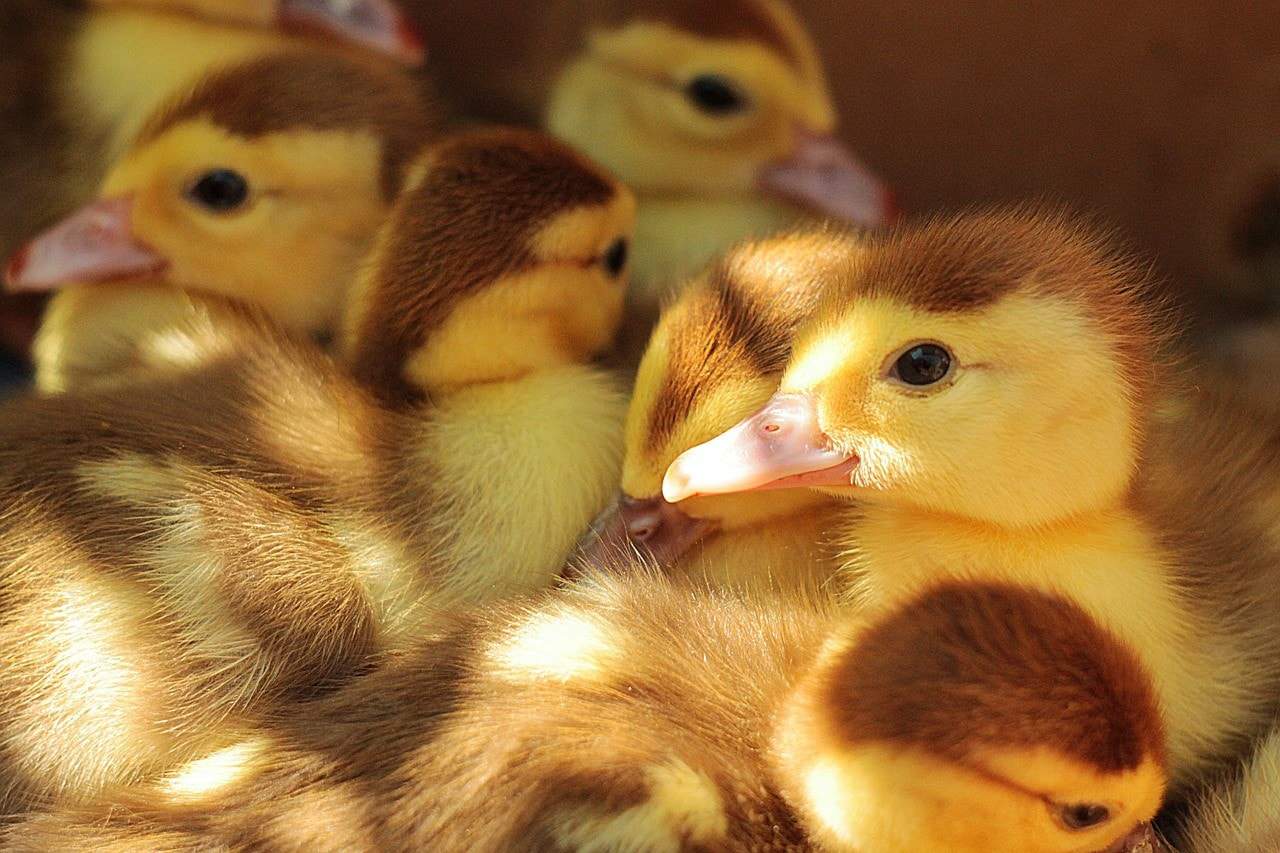Raising baby ducks, or ducklings, is partly a joy because of how adorable and endearing they are, and partly a challenge. Ducks are versatile animals and useful on a homestead, even if you don’t have much space for them.
Ducks help by taking care of bugs, laying eggs, providing meat as they grow older, and giving you something adorable to care for as a duckling. Although they are hardy as adults, the ducklings that have just hatched from their shells need plenty of warmth and safety to grow into strong, healthy adult ducks.
If you are getting ready to care for ducklings and need a few pointers, you have come to the right place. We have a care guide that will equip you with all the information you need to shepherd your ducklings into maturity.

Baby Duckling Facts
There are many more breeds of ducks, particularly domesticated breeds, than there ever used to be. Most of these duck breeds can trace their origins back to the Anas platyrhynchos. In Southeast Asia, raising ducks under human care started as early as 500 B.C. History tells us that Romans enjoyed roasted ducks more than almost any other early people group.
Now, there are duck species that live all over the world. Plenty of them are unique to their geographic regions and have evolved as separate species. The most common domesticated species in North America include:
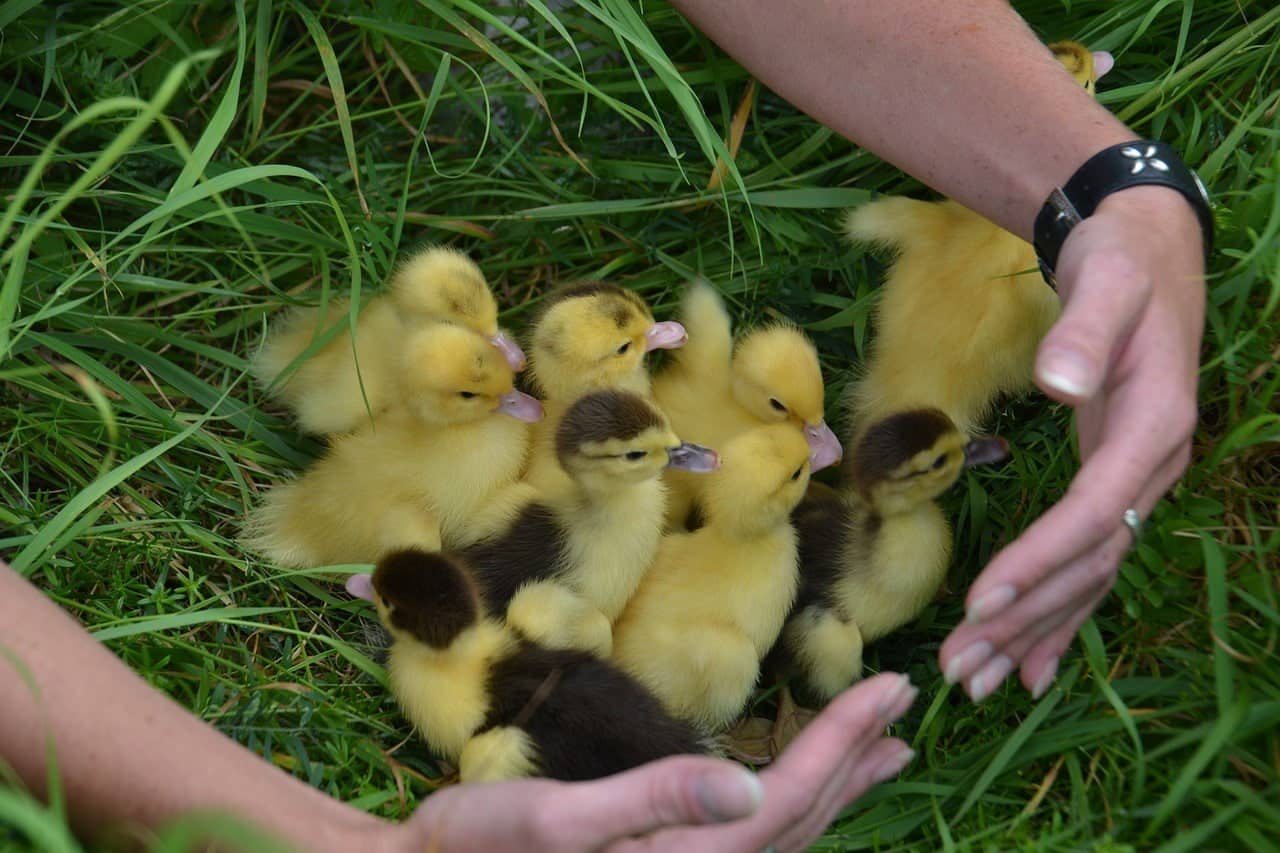
- Rouen duck
- American Pekin
- Saxony Duck
- Bali
- Black East Indian Duck
- Campbell Khaki Duck
There are many more available for homesteaders who want to raise their own ducks.
The first thing that you should be aware of when you start to raise baby ducklings is that they are born without any feathers. Instead, they will have a soft, fluffy fuzz covering.
One way you can tell they are starting to mature is that they will start to grow actual feathers. These adult feathers are waterproof, which is what allows a duck to spend so much of their time in water.
A duckling is fully feathered sometime between 7 and 9 weeks old and is often considered an adult at this point.
Do Baby Ducklings Make Good Pets?
Ducks that are raised as domesticated pets are keen on human interaction. They are gentle creatures and amusing to watch.
Ducks are intelligent creatures even if they don’t always like being held. They are quite clean, although their pen needs to be cleaned frequently to stop it from smelling.
A duck needs the companionship of at least one other duck, but they do enjoy living in a small flock for the most part. Remember that there are plenty of different breeds, and their preferences can change between them. For the most part, to be truly happy, a duck needs a mate — they are lovers, not fighters.
Ducks can learn how to do tricks, enjoy playing with toys, and recognize the people whom they feel the most comfortable around.
Ducklings need to stay with their mother ducks until they are about 2 months old and have their full-fledged adult feathers. That is when they are capable of flying away and making their own way in this big, beautiful world.
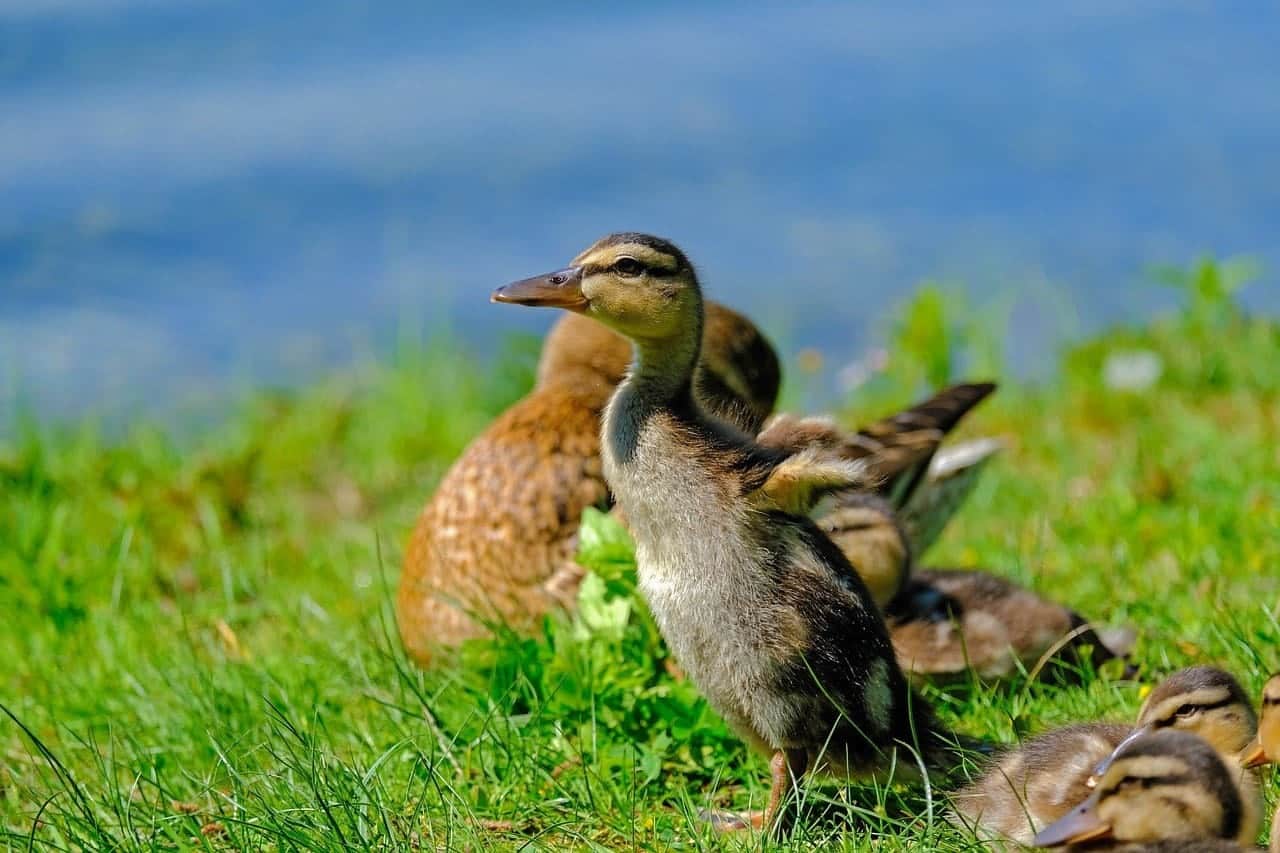
Where Can I Get a Baby Duckling?
Baby ducklings are easy to find from local retailers and farms in the community. Many people that raise large flocks of ducks will sell some of the ducklings from each brood each year. Some of them will even turn it into a more significant retail business.
When you are looking for a duckling or more than one to start your flock, the best thing to do is to look into the places that sell them in your local area. Conduct a Google search to figure out which farms sell ducklings and talk to them about how they raise and breed their ducks.
You can also get them from larger retailers, but you are less likely to get a well-bred duckling if you take this route.
Important note: Taking a duckling from nature is illegal. The migratory bird act protects most ducks in North America. It is only legal for humans to interact with duck populations during hunting season.
If you find an abandoned baby duck, it is best not to touch them for a while to ensure that they are actually abandoned. If you take a baby duckling home, you cannot release it back into the wild, since this would be a death sentence for them after interacting with humans.
Instead, if you are sure that this baby has been abandoned, talk to your local Wildlife and Fisheries officer, and they will rehabilitate it.

What Kind of Home Does My Baby Duckling Need?
Before you adopt ducklings, you should ensure that you have a home ready for them when you bring them to your house or farm. A duckling needs about 24 hours after they have hatched from their shells to get used to the new world that they have found themselves in. After that, you should move them to a brooder.
A brooder is a well-insulated box that will help keep the ducklings warm. Until ducklings start to grow their full feathers in, they have trouble regulating their temperature. If they get too cold, they will quickly die.
You can use a plastic storage container, a strong cardboard box, a wooden box, or even a glass aquarium large enough for the ducklings to wander around in as an effective brooding box.
The box needs to be ventilated so they can still breathe but not so that cold air can get in. The top should have plenty of holes, but don’t put too many holes on the side of the brooding box.
Line the bottom of the box with wood shavings or towels, something grippy and textured. Like many newborn creatures, ducklings are quite wobbly little quackers for the first few weeks of their lives.
Install a brooding lamp on the side of their box pointing down into the box. It is best to put it on the side instead of centering it, since it will give them space to cool off on the other end. Use a 100-watt bulb for very young ducklings. As they age, you can decrease the heat by lifting the lamp farther away from the edge of the box.
Supply the ducklings with a shallow drinking bowl, and ensure that it always has water, just not enough for them to fall in and drown themselves, since their fluff isn’t waterproof.
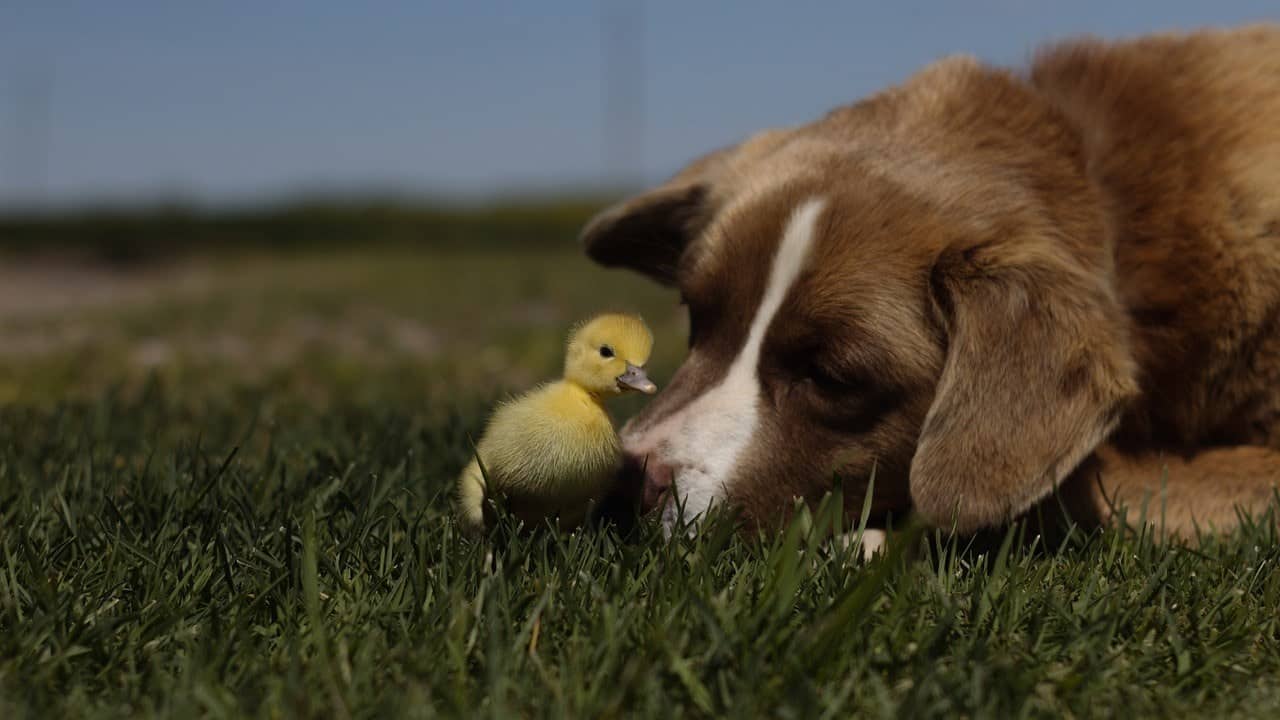
What Should I Feed My Baby Duckling?
Feed the ducklings a mixture of starter crumbs. They won’t eat for the first 24 hours after they hatch. They are still absorbing the last of the nutrients that were available to them from the yolk inside their egg.
Once they have finished this process, you should start them on starter crumbs. These are tiny pellets of duck food that are palatable and the perfect size for a tiny duckling. You should be able to find packages of these at any local feed supply store and online.
After their first 24 hours have passed, have these on hand for them and make sure they always have access to food from then on.
These crumbs will be foreign to the new ducklings, and you might need to mix water into them to make them easier to swallow.
If you have any weak ducklings, you may want to add more nutrition to their diet. Feed them things like mashed duck egg yolk until they are strong enough to digest their starter crumbs.
After 10 days of eating the starter crumbs, you can switch your duckling to growers pellets. These provide the same kind of nutrition as starter crumbs but are slightly bigger.
At 16 weeks old, your duckling is probably ready to switch to adult duck food.
- Related Read: What Do Baby Ducks Eat in the Wild & As Pets?
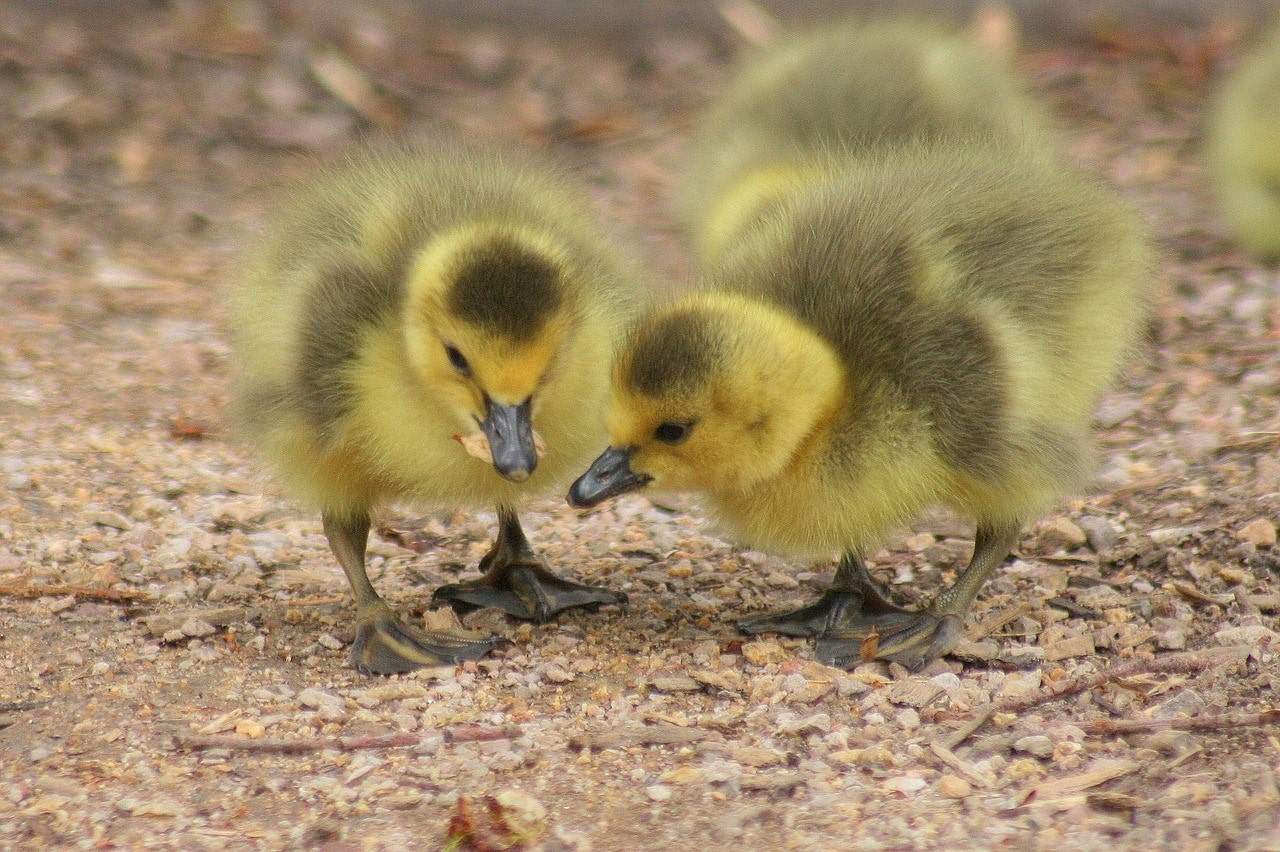
How Do I Take Care of My Baby Duckling?
Ducklings can be gently handled throughout their aging process, especially if you want them to get accustomed to human interaction. The safer they feel around you, the more likely that they will be comfortable and happy with your interactions when they become fully grown ducks.
Ducklings should always be kept in groups. They are social creatures and need the companionship of other ducks, especially when they are young.
Another significant factor when keeping ducklings is helping them learn how to swim. Ducklings love water, and they will enjoy splashing around playing in it from 1 week old.
In a natural situation, the momma duck would transfer some of the oils from her feathers onto her duckling’s fuzz so they are more buoyant. Since this doesn’t happen in a brooder, you cannot allow them to swim in water more than 1 inch deep unsupervised.
We suggest filling a painter’s pan with water so they can splash around in it while you supervise their playtime. Allow them to do this each day once they reach 1 week old for about 15 minutes a day until they start growing their full feathers.
When it comes to cleaning their pen, you should be taking the shavings out and getting them dry every couple of days. If you have quite a few ducklings in the brooder, do this more frequently to ensure a clean, dry living space to foster your ducklings’ health.
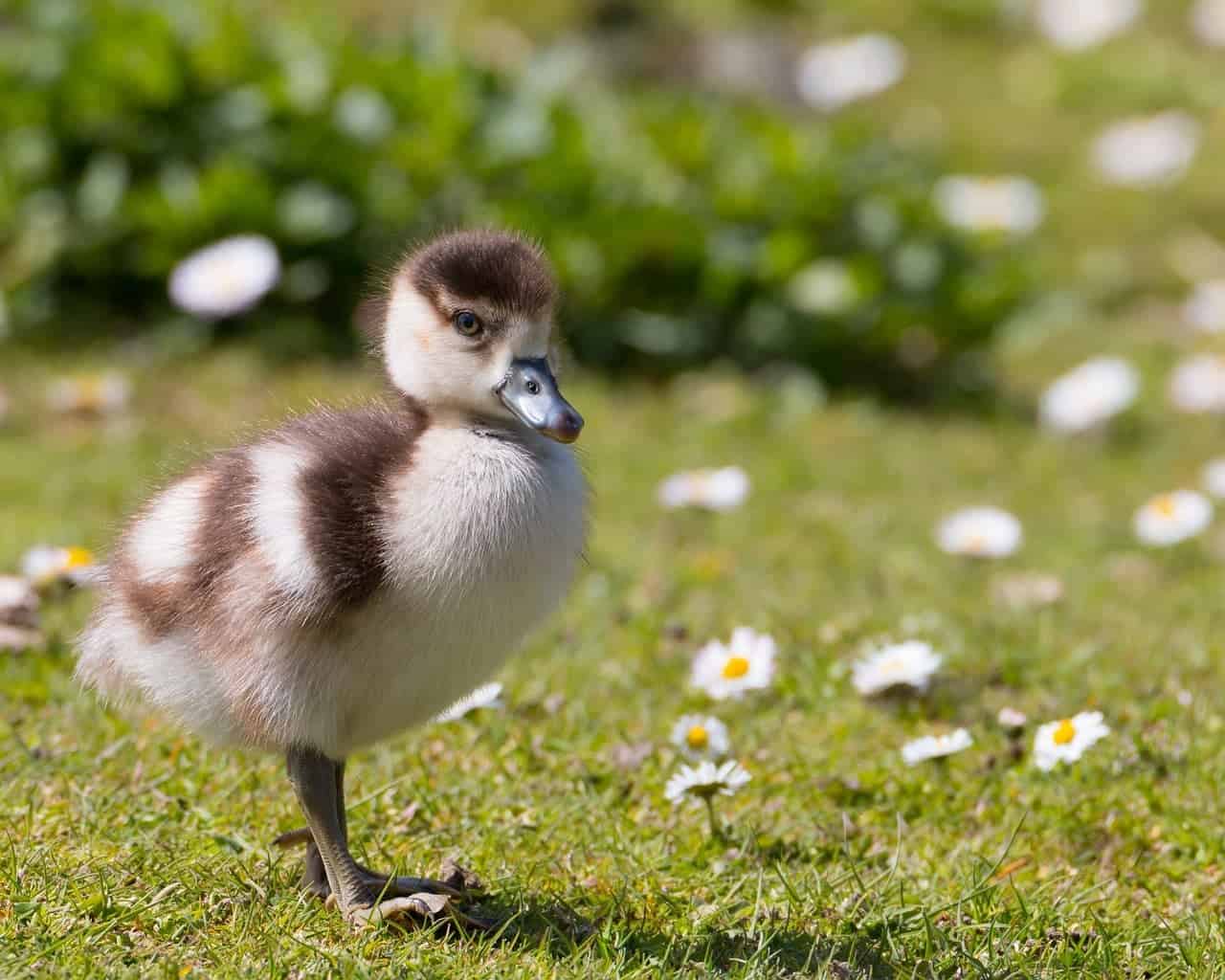
How Do I Know If My Baby Duckling Is Sick?
Ducks are generally quite hardy creatures. They will typically remain in excellent health so long as you meet all their basic needs. The most important factor to keeping a duckling healthy is to ensure that they are always warm enough and that their food and water are clean and available. Dirty water is often the cause of health problems in ducks.
Ducks can develop respiratory problems like bronchitis. They can sound like they are gasping, and you might even see discharge from their nose.
Bumblefoot is another common duck disease. It is a staphylococcus infection that infects their feet and will often happen when they cut their feet. Bumblefoot ends up looking like a black scab on their foot and will cause the duck to limp.
Another potential illness is sticky eye. This infection is often caused by debris or scratching. It will look like a bubbling liquid coming from their eyes or a red swelling that eventually leads to the eye being closed constantly.
Many of these diseases are more common in adult ducks than ducklings, since ducklings should be kept relatively sheltered. Observe your ducklings to learn their natural behavior so you can more easily recognize changes in their behavior and pinpoint potential health issues.
- Next on your reading list: What Do Ducklings Eat? What To Feed Them?

Conclusion
If you are considering adopting a duck, you must get all your “ducks in a row” before bringing them home. Even a short time spent in the cold can damage their health or be fatal. Ensure that you have a brooding box and heat lamp set up to smoothly transfer them into.
Ducklings are adorable creatures to raise, and they can be rewarding as pets or on a homestead. Luckily, they are quite hardy, and a bit of love and attentiveness will go a long way.
Featured Image Credit: Pixabay
